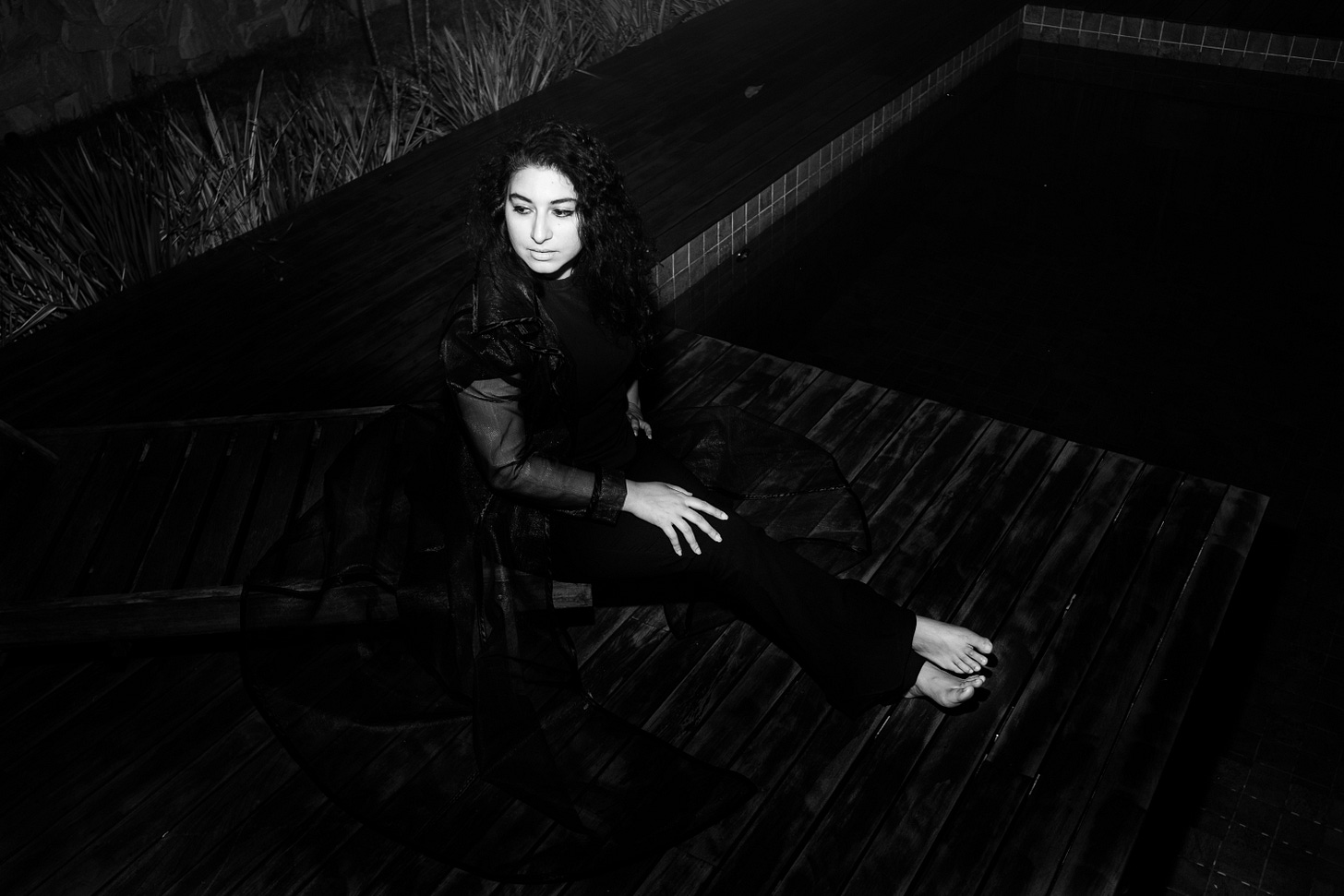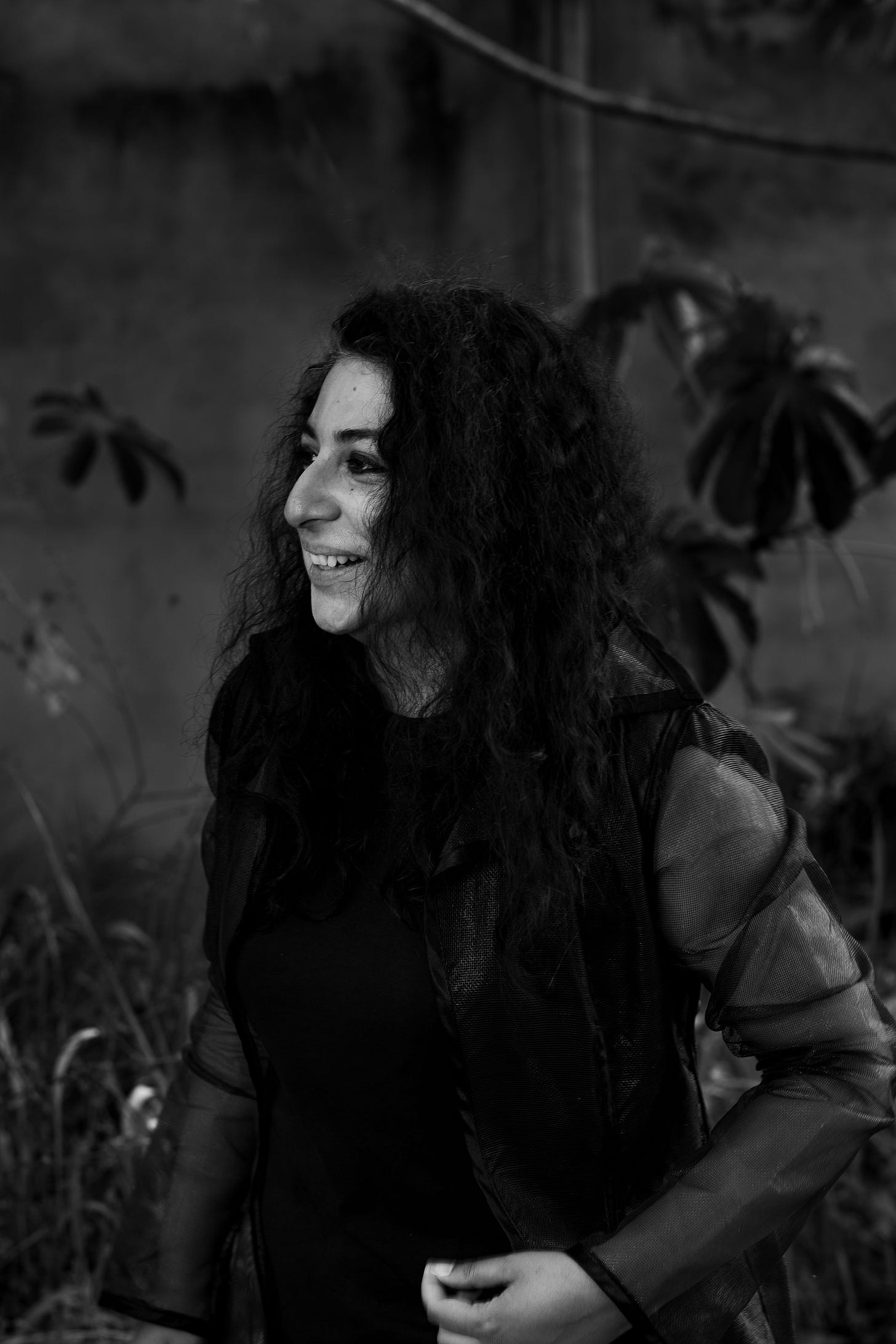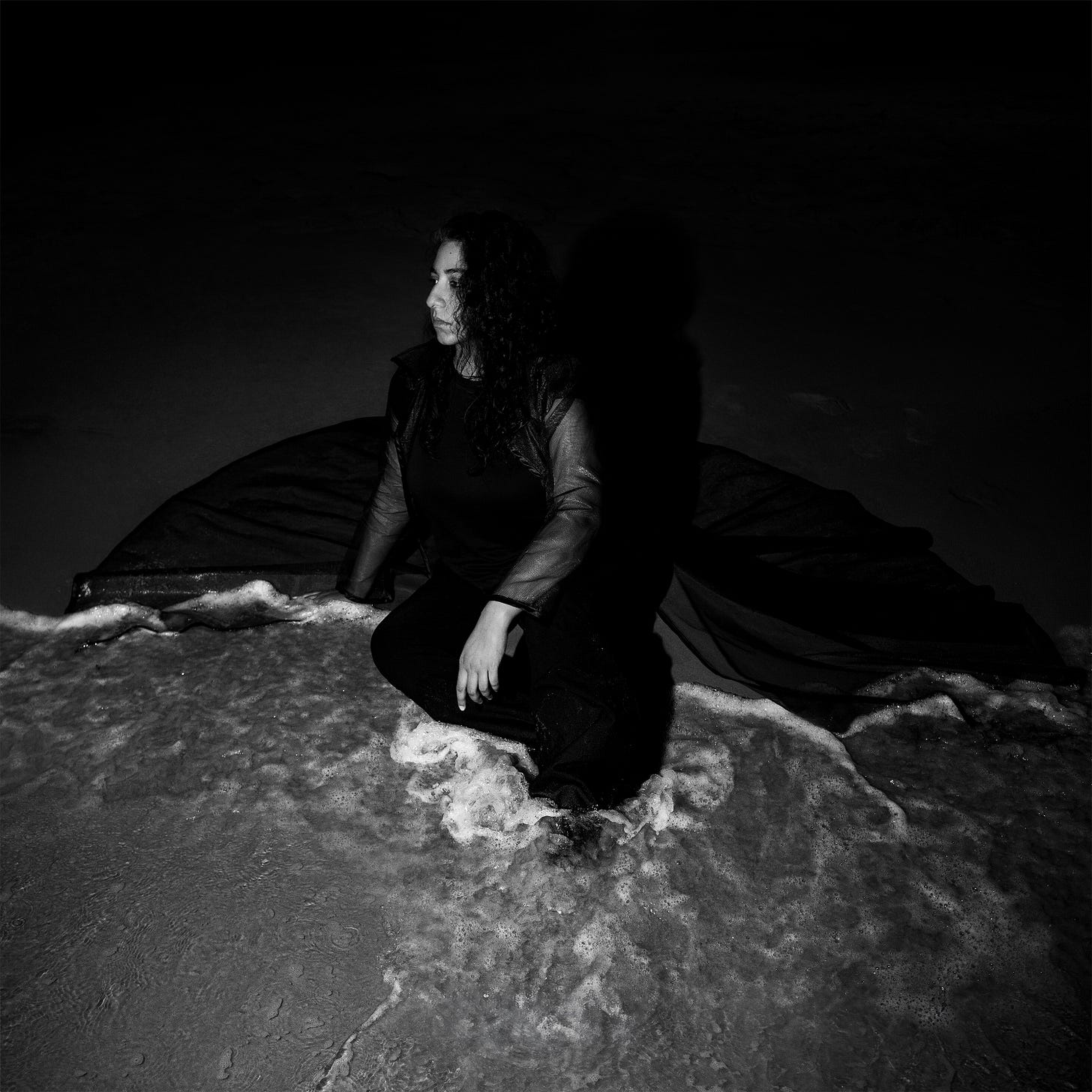At10 — Arooj Aftab’s Night Reign
"When you make the night the protagonist, anything can happen"
WORDS BY NAT LAZZARRATO
PHOTOGRAPHY BY KATE STERLIN
Pakistani-American Vocalist Arooj Aftab is a vocalist striving to elude definition. In each note of her gliding melodies is heard the harmonic depth of South Asian classical music, the clarity and polish of pop music, and the heart of jazz, blues, and folk music. Aftab refers to this complex melding of inspirations as “global soul,” with which she aims to convince audiences of the superficiality of defining music by genre. Her past solo albums include the Grammy-nominated Bird Under Water (2014), Siren Islands (2018), and Vulture Prince (2021), the latter of which won Best Global Music Performance at the 64th Annual Grammy® Awards for “Mohabbat”. Her collaborative efforts with Vijay Iyer and Shahzad Ismaily in the album Love in Exile (2023) were also awarded Best Alternative Jazz Album at the Grammy® Awards this year.
With her fourth solo project Night Reign, Aftab introduces us to her main inspiration─the night. She seeks to paint a heady picture of a “perfumed, public garden of renewal, peaking the senses with each composition…” and delivers this in spades. From the first notes of each song, the setting immediately comes into focus through the hazy air of lush chamber ensemble arrangements mixed with the glitter of synthesizers and soaring vocals. While the lyrics—carefully chosen from beloved poets—are delivered beautifully by Aftab herself, the most memorable moments in this music are deeply acoustic. Some vocal processing and overtly electronic mixing decisions cause disharmony, standing out amongst the delicate harp affectations and earthy grooves. Perhaps this is by design─a muffled, hidden garden tucked away beneath the halogen glow of neon signs. There are a few choice moments where this juxtaposition broke the atmosphere of an otherwise highly immersive album.
Beginning with “Aey Nehin”, we see Aftab soaring above thick vocal harmonies. Pulsating, lush instrumentation sets a mood that at once evokes the night calm in a dense urban environment. The music breathes with life organically before wandering off again into the night. Taking liberties with a poem by 18th-century Urdu musician Mah Laqa Chanda, Aftab pairs the poetess in conversation with the 16th-century queen Chand Bibi with “Na Gul”. Again we hear Aftab’s stellar vocal presence in a very rubato first passage. As the conversation nears its peak the music builds in tempo and texture before Aftab passes the torch to Australian trumpeter and composer Nadje Noordhuis for another tender treatment of the melody, this time on flugelhorn. The overall effect is pensive, contemplative, and hopeful.
Joseph Kosma’s “Autumn Leaves” seems like an out-of-place choice, Aftab showcases a rather inspired take on a well-worn jam session staple. With repose, Aftab pulls and stretches the melody near to tearing─sometimes doing away with the original motifs entirely─attempting to justify this new take. What occurs is a feeling-rich vocal performance of a tune performed countless times in countless ways. All in all, she breathes new life into the jazz standard and subverts expectations.
“Bolo Na” takes us through more restless moments of the night, touching on various issues of modern society. The beginning of the track sounds very compact, tense even. Possibly overly processed at first, this quickly becomes justified by Moor Mother’s gripping performance. Here especially we hear unbridled emotion erupting from every line. Although listed as featured, Joel Ross feels supremely under-utilized here, delegated to sparse textural accompaniment throughout. This piece is primarily a vehicle for Mother’s strong lyrics and animated delivery.
There are only so many ways to say how amazing Aftab’s vocals are on each track. From the clear influences of South Asian classical music and her studies in jazz to the more esoteric influences of her many communities and her ultimate muse of the night, each line is delivered with such sincerity as to lay all of herself bare. This is no more clear than in “Saaqi”, another compelling display of the lush chamber ensemble she has collected. With strings, keys, and vocal improvisations she paints a delicate portrait of the night that could share space with the works of Monet or Pissarro. The star-light touch of Iyer on piano provides just enough illumination to the night sky scene. Easily one of the highlights of the entire album.
“Last Night Reprise” provides us with an entirely new adventure. Upright bass sets the tone of mysticism, wonder, and heady smoke that is enforced by harp and flute improvisation and whirling electric piano. These swirling sounds evoke intrigue and danger as they briefly escape harmony before returning. This track, another highlight, showcases more of Aftab’s jazz influences. With “Raat Ki Rani” we hear some evidence of pitch correction. Possibly intentional, but given the acoustic direction of the album, this stands out more than intended.
Lyricism abounds in “Whiskey”, as Aftab speaks to heady romance as the waves of the orchestration build and crash before receding again. This shimmering effect compliments the underlying groove and overall folk sensibility. Compared to other tracks from the album, this one focuses more on dynamic direction. While not a criticism of the other tracks, this allows “Whiskey” to stand out even more. “Zameen” provides a poignant end to the night. Feelings of restfulness, revival, and content as the track progresses. Aftab never rises above a breathy whisper and the quietude of the sparse orchestration reflects this intimacy.
Overall Night Reign is a pleasant outing by Aftab. Highly conceptual, sparse, and delicate, allowing the power of the spoken and sung word to shine. Aftab’s influences and inspirations are laid bare in a highly personal reflection on the power of the night.
Find this and more in our latest print edition — Issue No. 13:
Interview by Michael Zarathus-Cook











